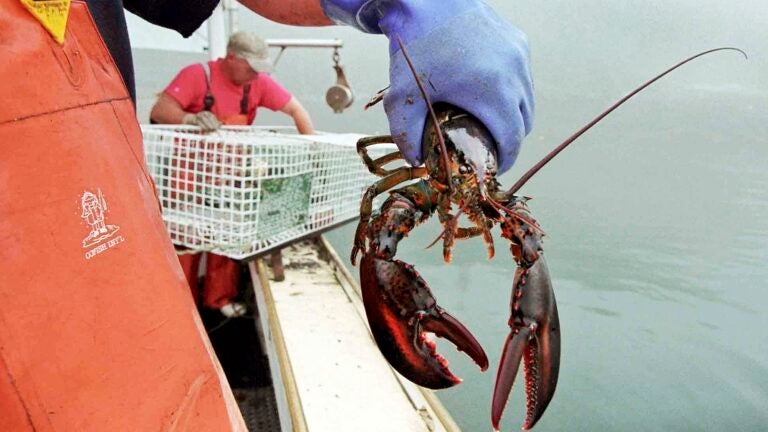Massachusetts lawmakers are not happy with Sweden—which doesn’t want our lobsters

Europe wants us to keep our lobsters to ourselves.
Earlier this month, the European Union’s Scientific Forum moved forward with a proposal by Sweden to ban live American lobster imports, by declaring the crustacean an invasive species.
But like a lobster roll left out too long in the sun, that decision did not sit well with local lawmakers.
In a letter Wednesday to the EU’s environmental director, the Massachusetts congressional delegation, led by Rep. Seth Moulton and Sen. Ed Markey, called the potential ban “excessive and unscientific.”
They also noted that the transatlantic lobster trade topped $200 million, $125 millon of which came from lobsters exports from Massachusetts. Lawmakers said the proposal would not only hurt the Bay State’s 1,169 permitted lobstermen, but Massachusetts entire economy.
Sweden first proposed the ban, as the Portland Press Herald reported in March, after the Scandinavian country found more than 30 American lobsters—which they believed came from U.S. imports—off its west coast.
Swedish said American lobsters could spread disease or interbreed with European lobsters, resulting in negative genetic effects.
Massachusetts lawmakers say those concerns are baseless.
“Sweden’s attempt to cast the American lobster as an invasive species is simply not supported by science,” Moulton said in a statement.
In their letter Wednesday, the Massachusetts delegation cited data from the United States and Canada, which they said showed no evidence that American lobsters could reproduce in the warmer waters of coastal Europe.
“We have the upmost [sic] respect for the EU’s desire to develop sound environmental policy based on the best available science, but we do not believe that the evidence provided by Sweden supports the listing of American lobsters as an invasive alien species,” Massachusetts lawmakers wrote in their letter to Daniel Calleja Crespo, the European Commission’s directorate-general for environment.
Swedish scientists reported in July their belief that American lobsters were able to migrate to lower depths where the water was cold enough to reproduce. They described the proposed ban as a “precaution.”
That said, University of Maine marine scientist Robert Steneck told the Associated Press earlier this month that the risk of American lobsters becoming an invasive species in Europe was “vanishingly small.”
In a statement Wednesday, Markey urged the EU to reconsider the “extreme blanket ban” and “work towards a solution so that Europeans can continue to enjoy this most delectable of American exports for years to come.”
Read the delegation’s full letter below:









Conversation
This discussion has ended. Please join elsewhere on Boston.com